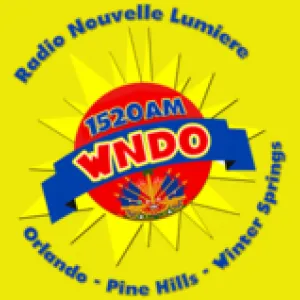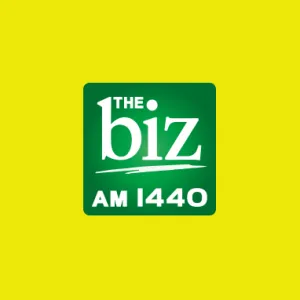Radio NHK Jissen Business English 03
0
Share
0
0
[
Listen Live
]Public Broadcaster Financed by Receiving Fees NHK (Japan Broadcasting Corporation), Japan’s sole public broadcaster, introduced a radio service in 1925 and a television service in 1953. NHK is financed by the receiving fee paid by each household that owns a television set. This system enables the Corporation to maintain independence from any governmental and private organization, and ensures that the opinions of viewers and listeners are assigned top priority. NHK Governors The Board of Governors is the decision-making body for every important ... See more
+81-3-3481-1350
2-2-1 Jinnan, Shibuya-ku, Tokyo 150-8001, JAPAN
http://www.nhk.or.jp
Views:
22Recommended radio stations:
Public Broadcaster Financed by Receiving Fees
NHK (Japan Broadcasting Corporation), Japan’s sole public broadcaster, introduced a radio service in 1925 and a television service in 1953. NHK is financed by the receiving fee paid by each household that owns a television set. This system enables the Corporation to maintain independence from any governmental and private organization, and ensures that the opinions of viewers and listeners are assigned top priority.
NHK Governors
The Board of Governors is the decision-making body for every important matter concerning NHK’s management policy and operation, including the annual budget, operational plan and basic programming policy. There are twelve board members, appointed by the prime minister and approved by both Houses of the Diet on behalf of the Japanese public. They bring a broad range of experience and expertise to NHK.
Television, Radio, Online
To serve Japan, NHK operates five television channels and three radio services. General TV and Educational TV are broadcast terrestrially, and with the three radio channels they provide a diverse range of programs, including news, education, and family entertainment. The three satellite channels also offer a varied and versatile program mix.
Internationally, NHK offers three television and radio services: NHK World TV, NHK World Premium and NHK World Radio Japan. News is provided in 18 languages on the radio and over the internet via the website www.nhk.or.jp/nhkworld/. NHK has 54 stations across Japan and correspondents in 28 locations around the world.
A Leader in Broadcasting Technology
In Japan, the launch of digital satellite TV broadcasting in December 2000 was followed by the first digital terrestrial broadcasts in December 2003. The core technology is Hi-Vision (HDTV), which delivers clear, vivid pictures and CD-quality sound. More than 90% of the programming on General TV is produced and aired in Hi-Vision.
NHK has been conducting research on even more advanced technology. One example is Super Hi-Vision, an ultrahigh-definition widescreen system with 4,000 scanning lines. Its picture resolution is 16 times better than the current HDTV system. NHK is also developing special-needs broadcasting services for the elderly and physically challenged.
International Cooperation
NHK promotes intercultural dialogue, and continually undertakes new co-production projects with broadcasting stations, production companies and distributors around the world. Between April 2007 and March 2008, NHK broadcast 68 co-productions under 33 titles, of which 31 were produced in Hi-Vision.
NHK (Japan Broadcasting Corporation), Japan’s sole public broadcaster, introduced a radio service in 1925 and a television service in 1953. NHK is financed by the receiving fee paid by each household that owns a television set. This system enables the Corporation to maintain independence from any governmental and private organization, and ensures that the opinions of viewers and listeners are assigned top priority.
NHK Governors
The Board of Governors is the decision-making body for every important matter concerning NHK’s management policy and operation, including the annual budget, operational plan and basic programming policy. There are twelve board members, appointed by the prime minister and approved by both Houses of the Diet on behalf of the Japanese public. They bring a broad range of experience and expertise to NHK.
Television, Radio, Online
To serve Japan, NHK operates five television channels and three radio services. General TV and Educational TV are broadcast terrestrially, and with the three radio channels they provide a diverse range of programs, including news, education, and family entertainment. The three satellite channels also offer a varied and versatile program mix.
Internationally, NHK offers three television and radio services: NHK World TV, NHK World Premium and NHK World Radio Japan. News is provided in 18 languages on the radio and over the internet via the website www.nhk.or.jp/nhkworld/. NHK has 54 stations across Japan and correspondents in 28 locations around the world.
A Leader in Broadcasting Technology
In Japan, the launch of digital satellite TV broadcasting in December 2000 was followed by the first digital terrestrial broadcasts in December 2003. The core technology is Hi-Vision (HDTV), which delivers clear, vivid pictures and CD-quality sound. More than 90% of the programming on General TV is produced and aired in Hi-Vision.
NHK has been conducting research on even more advanced technology. One example is Super Hi-Vision, an ultrahigh-definition widescreen system with 4,000 scanning lines. Its picture resolution is 16 times better than the current HDTV system. NHK is also developing special-needs broadcasting services for the elderly and physically challenged.
International Cooperation
NHK promotes intercultural dialogue, and continually undertakes new co-production projects with broadcasting stations, production companies and distributors around the world. Between April 2007 and March 2008, NHK broadcast 68 co-productions under 33 titles, of which 31 were produced in Hi-Vision.
© LogFM.com, 2009-2025 (2026-01-28,09:21:27)





